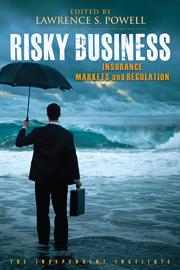Because insurance companies must set prices for their products prior to knowing their full costs, they use a number of methods to determine expected loss. Insurance scoring—the use of credit information in insurance underwriting and pricing—is an accurate, inexpensive predicator of insured losses, but confusion over its application often obscures its benefits. Drawing on previous research, this study discusses the appropriateness of insurance scoring while demonstrating its positive effects on consumers and the insurance market.
Companies apply risk classification systems in order to determine premiums that correspond to consumers’ exposure to risk. Through risk pooling, in which members of a pool each pay the average loss of the group rather than paying for an unpredictable and potentially larger individual loss, the insured are divided into “high-risk” and “low-risk” categories.
Insurance scoring assists in making these classifications. Scores are generally determined through an insured’s record of performance on credit obligations, use of credit, length of credit history, and types of credit used, and studies conclude that insurance scores are highly correlated with losses, and serve as powerful predictors of loss relative to other common risk factors.
Although some people are uncomfortable with the use of credit information in insurance rating, it actually benefits individuals and society. Its accuracy increases the fairness of the rating process by concentrating on variables that directly predict losses. Insurance scores also enable companies to determine suitable premiums for low-risk consumers, thus aiding companies in selecting appropriate premiums for higher-risk applicants whom they may have otherwise declined. Finally, the low cost of insurance scoring reduces the overall cost of providing insurance, savings that insurance companies pass on to customers in the form of lower premiums.









